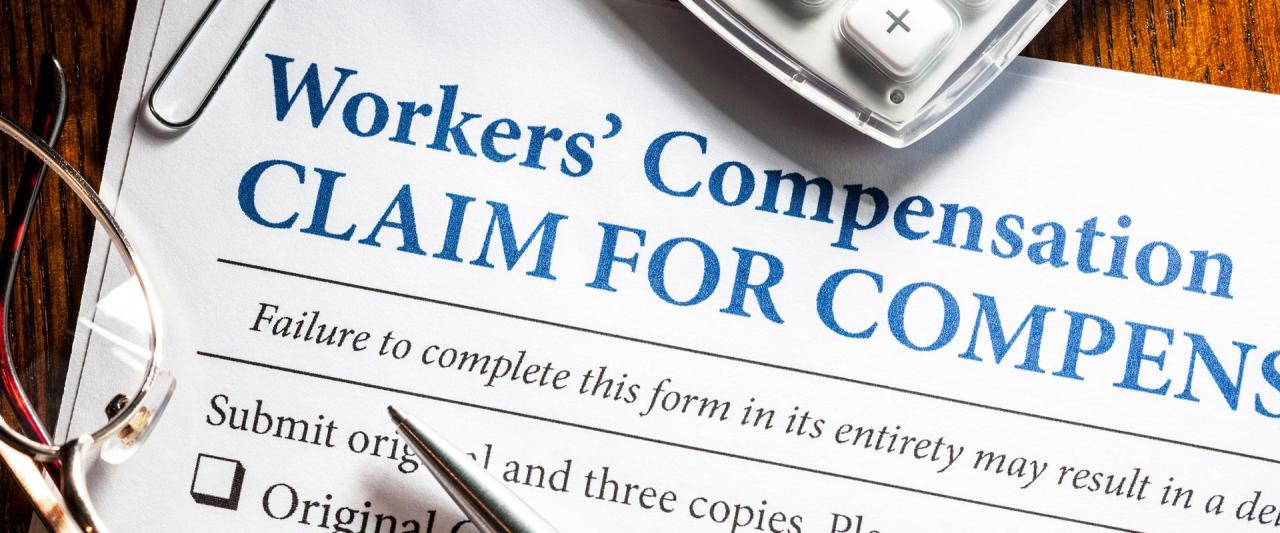
Overview of Workers’ Compensation Laws

Workers’ compensation laws are designed to provide financial assistance and medical care to employees who suffer injuries or illnesses due to their employment. These laws vary from state to state, but they generally cover employees who are injured or become ill as a result of their work-related duties.
Eligibility for workers’ compensation benefits typically requires that the employee:
– Was injured or became ill while performing their job duties
– Suffered an injury or illness that is related to their work
– Notified their employer of the injury or illness within a specific time frame
Common workplace injuries and illnesses covered by workers’ compensation include:
– Back injuries
– Repetitive motion injuries
– Slips and falls
– Chemical exposure
– Occupational diseases
Rights and Responsibilities of Injured Workers

Injured workers are entitled to certain rights and responsibilities under workers’ compensation laws. These laws vary from state to state, but generally provide for medical treatment, wage replacement, and other benefits to workers who are injured on the job.
In exchange for these benefits, injured workers have certain responsibilities, such as reporting injuries promptly, cooperating with medical evaluations, and following treatment plans. Failure to comply with these responsibilities may result in the loss of benefits.
Rights of Injured Workers
Injured workers have the right to:
- Receive medical treatment for their injuries.
- Receive wage replacement benefits if they are unable to work due to their injuries.
- Receive other benefits, such as vocational rehabilitation and death benefits.
Responsibilities of Injured Workers
Injured workers have the responsibility to:
- Report their injuries to their employer promptly.
- Cooperate with medical evaluations.
- Follow treatment plans.
Consequences of Failing to Comply
Injured workers who fail to comply with their responsibilities may lose their benefits. For example, if an injured worker fails to report their injury to their employer promptly, they may lose their right to receive medical treatment and wage replacement benefits.
Legal Process for Workers’ Compensation Claims

Filing a workers’ compensation claim typically involves several steps. An injured worker must report the injury to their employer within a specific time frame, usually within 30 days. The employer then has a certain period, often 10 days, to file a first report of injury with the workers’ compensation insurance carrier. The insurance carrier will investigate the claim and determine whether to accept or deny it.
If the claim is accepted, the worker will receive benefits such as medical treatment, lost wages, and disability payments. If the claim is denied, the worker can file an appeal with the state workers’ compensation board or commission.
Hearings
In some cases, a hearing may be held to resolve disputes over workers’ compensation claims. Hearings are typically conducted by a workers’ compensation judge or arbitrator. The judge or arbitrator will hear evidence from both sides and make a decision on the claim.
Role of the Workers’ Compensation Judge or Arbitrator
The workers’ compensation judge or arbitrator is responsible for making a fair and impartial decision on the claim. The judge or arbitrator will consider all of the evidence presented by both sides and apply the law to the facts of the case. The judge or arbitrator’s decision is typically binding on both the worker and the employer.
Settlement and Resolution of Workers’ Compensation Claims
When an injured worker and their employer cannot agree on the benefits owed under workers’ compensation, the claim may need to be resolved through a settlement or an award.
Methods of Resolving Claims
There are several methods for resolving workers’ compensation claims:
- Negotiated Settlement: The injured worker and the employer (or their insurance carrier) negotiate an agreement on the benefits owed.
- Mediation: A neutral third party facilitates a discussion between the parties to help them reach a settlement.
- Arbitration: A neutral third party (arbitrator) hears evidence and makes a binding decision on the claim.
- Trial: The claim is decided by a judge or jury in a court of law.
Factors Influencing Settlement Value
The value of a workers’ compensation claim is influenced by several factors, including:
- The severity of the injury
- The extent of lost wages
- The cost of medical treatment
- The injured worker’s age and earning capacity
- The availability of other sources of income
- The legal liability of the employer
Negotiating and Evaluating Settlement Offers
When evaluating a settlement offer, it is important to consider the following:
- The present and future value of the benefits being offered
- The impact of taxes on the settlement
- The possibility of future medical expenses
- The injured worker’s financial situation
- The advice of an attorney
